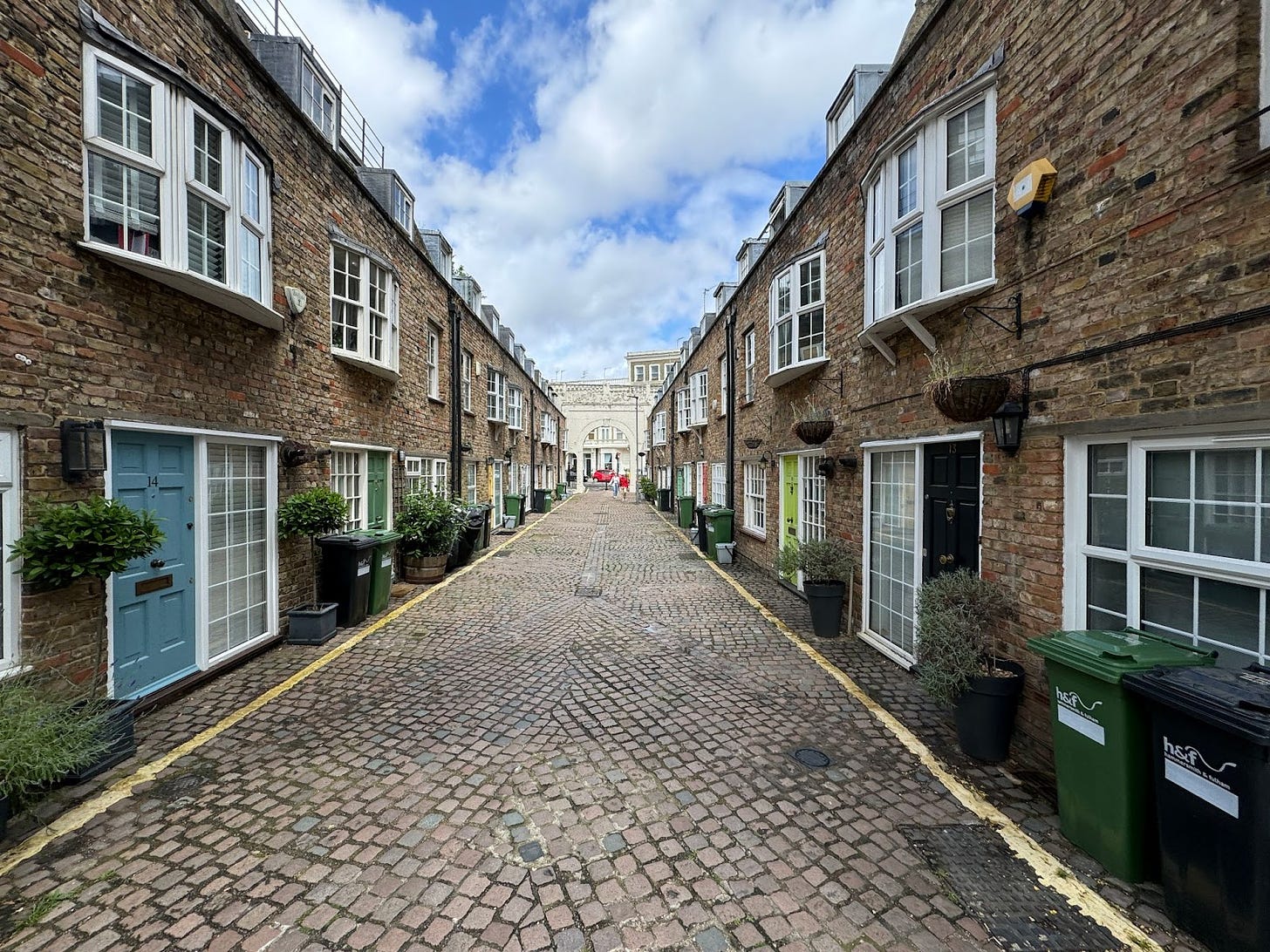
Discover more from onHousing
Everything, Everywhere, all at Once
The world is loud because everything is always on. If abundance triggers noise that lowers quality of life, can we do anything about it?
I recently penned a post about how cars in garden cities ruined much of their vibe. In addition to the NTBA’s UK Garden Cities trip, two other recent experiences bracket the consequences of sound extremes for me.
DRINKING FROM THE FIREHOSE
I was recently at an American sports bar having dinner after a ballgame, and I am not sure the management could have made the bar louder if they tried. There were 50 screens, and maybe 5 had audio on for their game, all different, all on full volume. The bar also had a customized music video track at full volume- Tom Petty, Tears for Fears, all that. Orders were being called out by the kitchen- Full volume. All of the guests had to yell to be heard. Certainly, many would lose their voice before the night was out.
I guess this is what “choice” is supposed to look like: all the options in your face, all at once.
See? Luxury! Well, I am not sure it is.
At that moment, to me, luxury would have been a scotch, a salmon, a single game on the tele (if that), and a softly-spoken conversation with a friend or the barkeep. Perhaps that’s just me. But Everything, Everywhere, and All At Once isn’t the consumptive paradise we were told to accept it as.
I get it; some of this is on me. I went to a sports bar. If I wanted peace and quiet, I could have chosen not to go to the sports bar. But it’s not like this extreme noise was tied to some communal event. There was no specific game on, no unifying factor to whip this all into a tizzy. This is every day. All day, every day. At the most basic of dinner with friends, we are being forced to drink through a media firehose, whether we want to our not. Life is always on. In 2024 it takes a herculean effort to turn it off, even for a little while.
Simplicity matters. In light of this bar, abundance looks like a Faustian bargain.
There is a long-lost art of consuming a peaceful drink sans noise.
5 AM CLUB
Second, this summer, I started waking up at 5 am (doing The 5 AM Club). This has been nice on a couple of levels, none more than the fact that Durham, North Carolina (which I love) is a fiery inferno hellhole in July and August between 8 am and 8 pm. You get about 2--maybe 3--hours to enjoy the environs before the broiler cranks your fanny. And, while I am appreciative of the pre-dawn meditation, reading, and workout, what I really love is that at that pre-dawn hour, the city is so. damn. quiet.
I live very close to downtown. I am a block from a bar district and the university’s notorious dance club. I’ve had drunk students wake up on my front porch on a Sunday morning. As far as urbanism goes, I am all up in it. During the pandemic, we were street racing central. Buses roll in all directions a block away. It’s L.O.U.D. loud.
But at 5 am? Not a damn thing. If it wasn't for the birds, you could hear a pin drop.
Not only are there no cars, but there are no condensers. In North Carolina, the AC condenser is the state hummingbird. 10,700,000 people, and from Murphy to Manteo, every single one of them is spinning a personal heat pump compressor fan—some of them two.
But at 5 a.m.? Nada. It’s 65-70 degrees out. The AC’s off. I can hear nature. I can hear my city. I can hear what life is supposed to sound like.
The Mews of London would rarely be possible in the South because condenser placement is so challenging. The Americanized version will feature visual and auditory clutter.
Interestingly, the Garden Cities of the UK have no compressors. It’s never that hot in Hertfordshire (which is so far North that in the summer, the sun sets at 10 pm and rises at 4 am), and this is great for both sound and urbanism (if not your circadian rhythms). These corridors have no ugly compressors or the sounds that come with them. If I build Garden City density in North Carolina, any quaint alleyways and gardens will be overwhelmed with AC units. It’s a really hard design problem to solve.
But it can be solved by waking up on a farm or at 5 a.m.
Noise matters; it’s an underappreciated component of great cities. We should be talking more about how to control for sound in our codes, our site plans, and our vertical construction; how to sound buffer from irritants ranting from freeways to compressors; how to create little refuges from the chaos - the deafening cadence - of the modern world.
I will conclude the Garden Cities series next week. Feel free to reach out in the comments or AMA.








